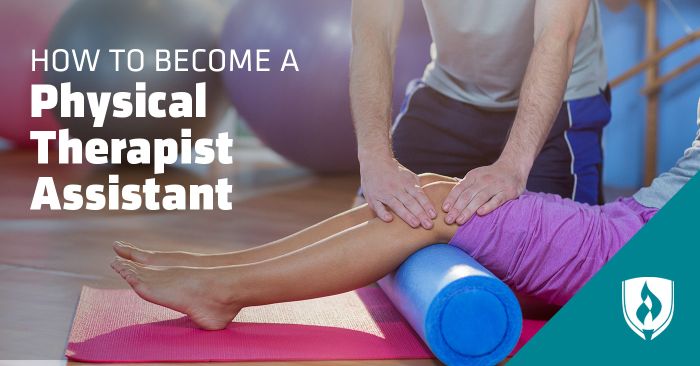In order to become a physiotherapist, you need to start with an aptitude for caring for others. You could be working in hospitals, home health environments, skilled nursing facilities, rehab centers, outpatient clinics and athletic training facilities when you join the workforce.
Job shadowing a few physical therapists, if possible, while you’re in college will help you figure out whether or not this is the right job for you.
Depending on which country you want to practice, you’ll need a degree in physiotherapy. Is it possible to become a PT without going to university? The answer is a qualified yes. Let’s take a look at how you could become a physiotherapist around the world, without spending a few years (and a lot of money) at university.
In some countries, you could jump right into working, while you earn the qualifications needed for your career.
Study a Part-time Degree Program
You could always take up a part-time program (in countries that offer it) so that you can work while you study and fulfill your other responsibilities. The UK is a good place for you if this is what you’d like to do.
The basic requirements to practice as a physiotherapist in the UK are registration with the Health and Care Professions Council (HCPC). Now, before you can register, you need to have a certain basic degree level physiotherapy qualification. But you don’t have to go to university full time to earn your degree. What you do need is a lot of practical experience with patients.
You can bypass university by taking up a part-time degree apprenticeship in physiotherapy, as long as you’re over 18 and have done your A levels, an IB or an advanced apprenticeship. In the UK, the degree apprenticeship programs were rolled out in 2015, and they’ve made life easier for those who don’t have the time or resources for a full-time bachelor’s or master’s degree.
Your apprenticeship program could take anywhere between four and six years, and your degree will be awarded by the participating university. For instance, the University of Salford in the North West offers a part-time undergraduate physiotherapy course that you can complete in your own time while you work.
After you’ve registered with the HCPC, you can start practising. But you have to also maintain your name on the register by continuous learning and upgrading skills.
Find International Programs that Accredit You as You Graduate
There are some programs around the world that let you take up a bachelor or other undergraduate program as a freshman, and accredit you as you graduate. After that, all you may need is a license before you can start practising.
We highly recommend the University College Dublin, Ireland, for its BSc (Hons.) in Physiotherapy for undergraduates. Not only is the college popular with international students, but the programs it offers are also already accredited by the Irish Society of Chartered Physiotherapists. In other words, when you graduate, a professional body already accredits you.
In Australia, you can study a Bachelor of Physiotherapy (lasting four years) and then apply to register with the Physiotherapy Board of Australia. Another option is a five-year double degree, which is offered by some colleges.
Some physiotherapy degrees offer an Honours stream in the third and fourth years if you’re a good student, and this gives you an advantage when you’re looking for jobs. The Bachelor of Applied Science (Physiotherapy) and the Bachelor of Exercise Science are also related degrees.
Take Up Short Courses
Like in the UK, Australia has several trade schools under the TAFE network, which is nationally (and in some cases, internationally) recognized. You can take up a diploma of Practice Management, and others to prepare to get accepted for higher education in physiotherapy.
There are some private colleges in Australia that offer physiotherapy courses at the certificate, diploma and advanced diploma levels. You can take up short courses like Treatment of Sports Injuries, Clinical Practice Management, etc. as well.
Consider Becoming a PTA
A physiotherapist assistant (PTA) spends a lot of time doing hands-on work with patients and it takes a lot less time to train to become one. You should especially consider it if you’re going to study in the US.
In the US, to become a physiotherapist (or physical therapist or the related kinesiologist), you usually need to have a Doctor of Physical Therapy (DPT) degree that is approved by the CAPTE (Commission on Accreditation in Physical Therapy Education). Don’t worry about finding a program – there are over 200.
Now, the typical DPT program lasts 3 years, to be done after completing three years of your bachelor’s program (during which you may be required to take biology, anatomy, chemistry, physiology and physics). But the alternative is to take up a program that takes you in as a college freshman and lets you graduate after 6 or 7 years with a dual bachelors and DPT degree.
Next, you’ll need to pass the NPT exam. You’ll also need a license to practise, and to keep it, you’ll need to upgrade your skills from time to time. After you graduate, the usual (optional) route is to complete another year of a clinical residency program, followed by a fellowship in an advanced clinical area to specialize.
To become a physiotherapy assistant, however, you only need to study two years. Your career as a PTA will start with an associate degree. But you will need to make sure that any PT program you decide to pursue later will recognise the credits you’ve acquired.
You can become a physiotherapist without higher studies at a university. But in some countries, you will still need about six to seven years before you can begin to practise your profession. An alternative is to study to become a physical therapy assistant, which takes a lot less time to complete. Or you could take up an integrated bachelor’s degree that will also give you accreditation as you graduate.




This Article was very helpful.Thank you